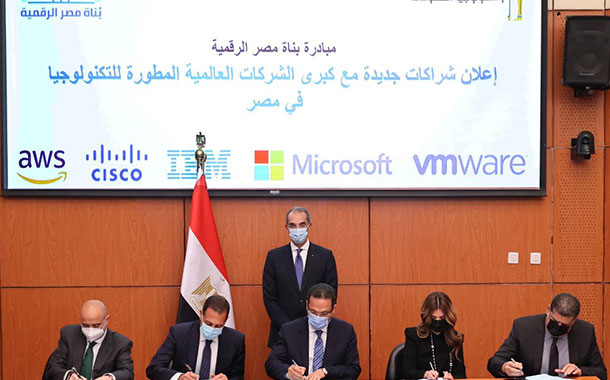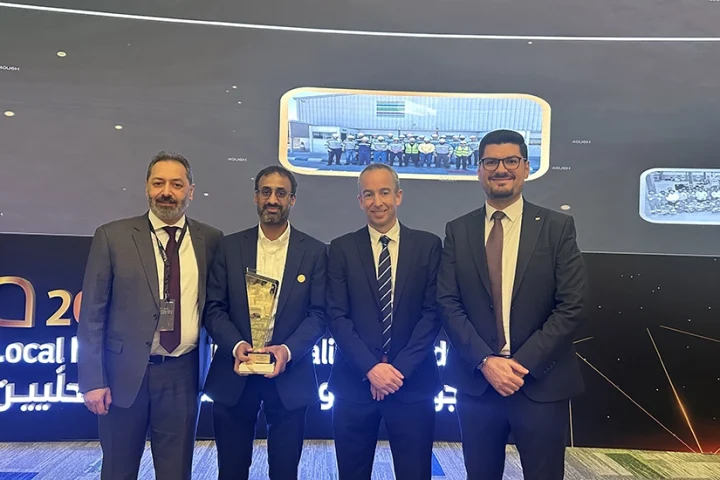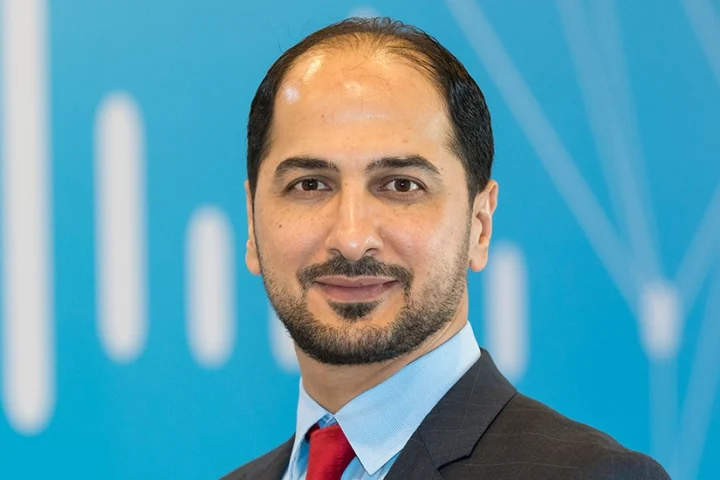Within the framework of implementing Digital Egypt Builders Initiative, DEBI, the Minister of Communications and Information Technology Amr Talat has witnessed the announcement of new partnerships with major international technology companies operating in Egypt, including Microsoft, IBM, Cisco, VMware, and Amazon Web Services AWS. The aim is to hone the technical skills of the initiative participants, introduce state-of-the-art digital technologies, provide excellent opportunities of professional training, grant international certificates, and help students get closer to the job market.
DEBI is a state-funded program for granting top graduates at the Faculties of Engineering and Computers and Information a professional Master’s degrees in data science and Artificial Intelligence, cybersecurity, robotics and automation, and digital arts.
Talat underlined that signing the MoUs is a huge step forward in capacity building, which is a key pillar in the strategy of the Ministry of Communications and Information Technology and, MCIT, and a foundation of Digital Egypt vision.
DEBI offers a unique model of productive cooperation between the government, represented by MCIT, and the international technology companies operating in Egypt, said the ICT Minister. The initiative helps bridge the professional gap in the ICT sector and create a generation of specialised professionals through providing technical and practical training delivered by the international companies, to equip the students with practical experience and hone their job skills, he added.
The collaboration with Microsoft aims to provide technology awareness courses and trainings in cybersecurity skills to the initiative participants. This is in addition to providing a training course in data science and AI and organising hackathons to help students solve real-world problems and challenges using technology. The collaboration will also help connect the graduates of the initiative to Microsoft Partner Network to find job opportunities.
For her part, Mirna Arif, General Manager, Microsoft Egypt highlighted that Microsoft Egypt is proud to support DEBI and cooperate with MCIT. The partnership comes out of Microsoft’s firm commitment to develop the capacities of promising young Egyptians in data science, cybersecurity and AI, build their work experience, and empower them to overcome current and future challenges.
The initiative also provides academic education in cooperation with major international universities, as well as training on a range of personal and English language skills delivered by specialised companies. This is in addition to raising the participants’ cultural awareness with the aim to equip the students with a set of skills to qualify them to compete at the local and international levels, said Talaat.
The ICT Minister highlighted that the proposals and requirements of the companies helped develop the initiative. He added that DEBI is fully funded by MCIT and aims to create a base of skilled people to build Digital Egypt, which will help transform Egypt into a regional ICT hub.
The cooperation within DEBI involves four main pillars. The first is introducing ICT state-of-the-art technologies through holding hands-on workshops in various technology areas, and educational seminars for students during the study period, in addition to organising a hackathon for addressing today’s challenges capitalizing on technology. The second pillar is providing professional training and certifications through providing training courses on the initiative tracks through the companies’ platforms, to develop the students’ skills in using these platforms.
The third pillar of cooperation includes providing the students with training opportunities in applied projects and supporting their graduation projects in the initiative tracks. This is achieved through the participation of students in implementing actual projects within their graduation projects, and in committees for evaluating the graduation projects ideas and making sure they meet the job market needs.
The fourth pillar is connecting the students to the labour market through allowing them to participate in the advisory board of the initiative and in developing the curricula to cover the labour market needs and access professional networks, in addition to providing job opportunities for graduates.






















